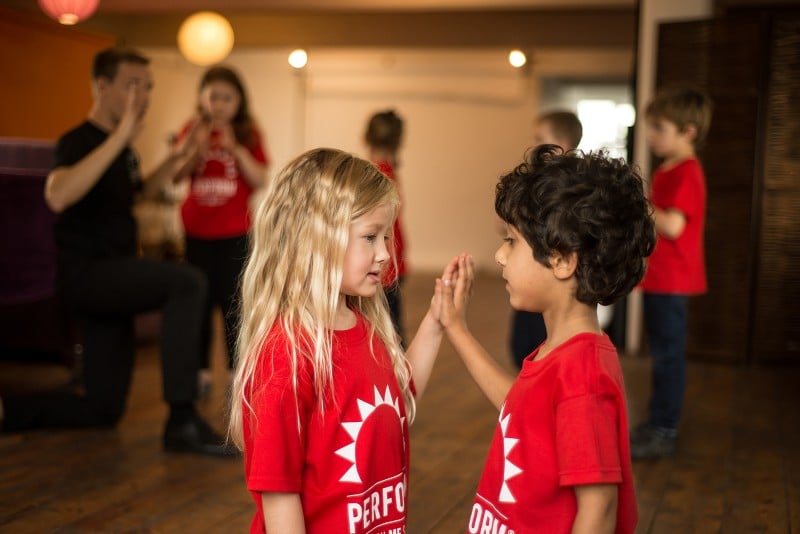Easy ways to help your child to make friends
For some children making friends comes really easily but for others it can be a struggle. If you're concerned that your child doesn't ‘mix' easily with other children there are things you can do to help.
The 'skill' of sociability
Obviously all children are different - some are naturally more solitary and actually don't really want to mix with others. Teaching at Perform, the children's drama school, I see that some children seem to want (and indeed need) a little down-time and are perfectly happy to be on their own.
However, others stand on the edges, not because they want to be alone but because they can't seem to find a way in to the group. Being sociable, like anything else, is a skill. For some it comes naturally but for others it's much harder. I think in some cases it comes down to self-confidence. I had a little girl come into my class a few years ago (we'll call her Aimee). When she joined her mother warned us that Aimee didn't seem to mix very well with other children. For the first few weeks it was a bit of a struggle: Aimee cried and didn't want to join in. However we persevered and gradually her confidence grew. She began to join in and found that she really enjoyed it. We even received a thank-you card from her mother at the end of her second term, saying that Aimee had begun to make friends at school too, and had just hosted her first sleepover.
Is there a problem?
If you are concerned about how your child is getting on, first talk to them about how they are feeling. If they seem happy, then there probably isn't a problem. Some children will have lots of friends, whereas others will form fewer (but often much closer) friendships.
However, if your child expresses concerns about fitting in, or feels left out, then it might be worth talking to the school, as they should all have systems in place to help support your child.
If your child is lacking in confidence, then they will need lots of encouragement from you. It's something of a self-fulfilling prophecy: if your child believes that they don't fit in, then they will struggle; whereas if your child believes that they will make friends, then they will.
Finding other children who share your child's interests can be really beneficial. Ask your child who they get on well with and arrange for these children to come over to play. Often children are significantly more confident in their own home environment and as such, friendships can blossom more easily. Often starting out with one or two friends naturally leads to having many friends at this age.
Finally, remember that your child will take their lead from you. So if you find talking to new people difficult, then your child might do too.
Play & pretend
Claire Halsey, Clinical Psychologist says "Being able to show that he/she cares about others is a vital friendship skill for a child, so help him/her by talking about emotions and putting names to her feelings and those of others."
At Perform I find that the game I feel like... is a really good way of encouraging children to be aware of others, express their feelings openly and to improve their confidence. Why not try it at home?
Lucy Quick is co-founder and Principal of Perform and has over 20 years' experience working with children.
Perform's weekly drama classes for 4-7 and 7-12 year olds, are specifically designed to boost your child's confidence, improve their concentration and give them a creative outlet to make friends and have fun. Perform offers FREE trial sessions at all our venues across London, the South and West of England. Find your nearest online.











